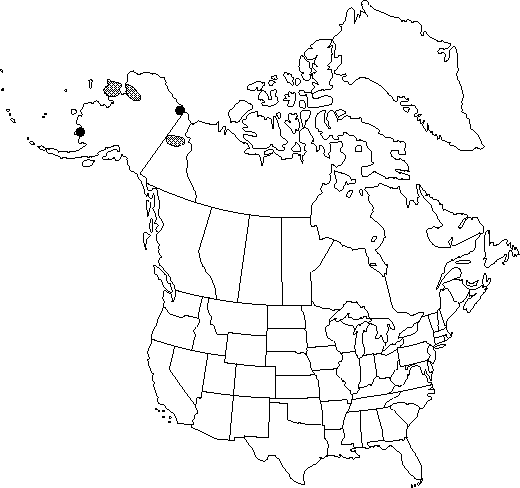Papaver walpolei
Rhodora 41: 231, plate 552, figs. 4-10. 1939.
Synonyms: Papaver walpolei var. sulphureomaculatum Hultén
Treatment appears in FNA Volume 3.
Revision as of 18:37, 25 September 2019 by RevisionBot (talk | contribs) (Bot: Adding category Revised Since Print)
Plants densely cespitose, to 1(-2) dm. Leaves to 4 cm; petiole to 3/4 length of leaf; blade light green abaxially, dark green adaxially, sometimes glaucous, short-lanceolate, unlobed or 1×-lobed with 1(-2) pair(s) of lateral lobes, glabrous adaxially; terminal lobe rarely with small secondary lobes, apex rounded. Inflorescences: scapes erect, glabrate to hispid. Flowers to 3 cm diam.; petals yellow, or white with yellow basal spot; anthers yellow; stigmas 4-5, disc convex. Capsules turbinate to ellipsoid-obovoid, to 1 cm, sparsely to densely hirsute, trichomes light brown to black. 2n = 14.
Phenology: Flowering late May–Aug.
Habitat: Exposed tundra uplands, especially calcareous fellfield and river gravels
Elevation: 0-900 m
Distribution

Yukon, Alaska, Asia (Russian Far East, Chukotka).
Discussion
Selected References
None.
Lower Taxa
None.